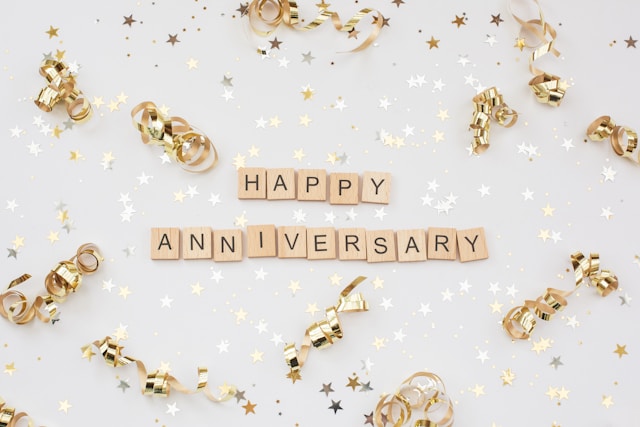
Anxiety is an essential topic because you can’t talk about healing from betrayal trauma caused by the actions of sex addicts without looking at anxiety. Fear of the unknown can impact your mental, spiritual, and emotional health. However, those betrayed by sex addicts don’t have to live in constant anxiety. There are ways to manage anxiety caused by betrayal trauma. For this blog entry, I will discuss how I dealt with the anxiety after receiving the disclosure nine years ago and how I deal with it now.
Let me state there is a difference between anxiety and anxiety disorder. Anxiety occurs based on situations or problems; the episodes don’t tend to be extensive. Therefore, some would say anxiety is a normal response to a specific problem. (This is the type of anxiety I will be discussing in this blog entry). On the other hand, an anxiety disorder is a treatable mental illness. Here are some anxiety disorders:
Social anxiety disorder – a chronic mental health condition in which social interactions cause irrational anxiety. Everyday social interactions cause irrational anxiety, fear, self-consciousness, and embarrassment for people with social anxiety discord.
Panic disorder-a psychiatric disorder in which debilitating anxiety and fear arise frequently and without reasonable cause.
Post-traumatic stress disorder-a disorder in which a person has difficulty recovering after experiencing or witnessing a terrifying event. This condition may last months or years, with triggers that can bring back memories of the trauma accompanied by intense emotional and physical reactions. (I struggled with this after discovering about the first affair and receiving a disclosure).
Obsessive-compulsive disorder is a personality disorder characterized by excessive orderliness, perfectionism, attention to detail, and a need for control in relating to others.
Different levels of anxiety require different kinds of treatment, including medication. There is no shame in treating anxiety or anxiety disorders. If you had a broken arm, wouldn’t you want physical therapy, medication, surgery, or whatever was necessary to repair your arm so it could function at its best and eliminate pain? Well, anxiety medication can be the key for people to function at their best emotionally and mentally.
Sometimes, medication is needed at the beginning of the healing process to help partners deal with the shock or PTSD symptoms. I know women who started their recovery journey with the help of medication but eventually discontinued the use or lowered their dosages. Other people use essential oils, meditation, yoga, supplements, and sleep aids to name a few (all of which I have used) as supplements or additions to medication. Please consult your physician or psychiatrist when considering alternatives or additions to prescription medication. It’s essential to manage your anxiety in the most appropriate way for your healing.
Ever since I was a child, my mother told me I was a “worrier,” I just accepted that was who I was. However, I was using the wrong term; anxiety was always part of my DNA under the surface, which exploded in my life when I received the disclosure. Although I approached the anxiety as an emergency, I couldn’t ignore how it affected my life. Anxiety was in my face, and it wasn’t going anywhere.
I had anxiety concerning the following after disclosure:
- My husband was living a double life.
- My husband may not love me or ever loved me.
- I could have a disease.
- I might have to get a divorce.
- I can’t see the future and have little control over it.
- I can’t change my husband’s past behavior.
- How could I have missed it?
- Did other people know, and I didn’t?
- Is there anyone I can share this information with, and what will they think?
- Do I even really know my husband?
- If I get a divorce, how will this impact the kids?
- We’ve only been here a year, and my kids are still adjusting to the move; they may have to adjust to a divorce.
- My close friends and immediate family didn’t live near us.
- Was my husband laughing at me inside? Did he think I was an idiot? Was I an idiot?
- What am I going to do? How can I possibly stay married to him?
- How do I know he told me everything?
- If we get a divorce, will he screw me over?
- What if I die from AIDS?
- I hate him.
- Where is God in all of this?
- I can’t believe I am in this situation.
The anxiety caused ruminating thoughts that kept me from concentrating on simple tasks and sleeping. I look at this list now and wonder how I was able to parent my children, who were young at the time, socialize with friends, interact with neighbors, talk to people at church and run the household. Thankfully, I have much more compassion for myself and what I went through years ago than I did when I was in the thick of anxiety triggers. In addition, commitment to prayer, seeing a therapist, meditation, journaling, reading helpful materials, and attending support meetings helped significantly.
Here are some ways I managed my anxiety at the beginning of my healing process:
- Someone told me to “be where my feet are.” This mantra was powerful because it reminded me to deal with what was in my presence. I couldn’t worry about everything at once, but if I could note where my feet were, I could handle that and only that. So when anxious thoughts came into my mind, I asked myself, Where are my feet? Trying to let my mind wander to several places at once didn’t calm me. I still regularly tell myself this because being in the present is a lifelong challenge.
- I had to break things down into “little pieces.” I had to remember to break things down when I started to feel overwhelmed by all of the concerns my new reality caused. For me, deciding what to do about the relationship wasn’t the first issue to tackle. I had to take care of: (1) getting an STD test, (2) finding a therapist, (3) attending a second support group, (4) reading books for partners of sex addicts and sex addiction, (5) having mini crying and breathing breaks in places my kids couldn’t see or hear me. Once I broke things down into manageable pieces, I realized there were timely tasks that needed my attention and energy. Life began to feel more manageable even though I was aware of the long list of concerns that hovered over me.
- I reminded myself I didn’t get in this situation overnight. Once I received the disclosure, I put tremendous pressure on myself to get going and figure things out, but that was unrealistic. My husband’s addiction and my coping skills (even though I didn’t know what was going on) became progressively worse over the years before the disclosure. The situation I was in wasn’t going to change immediately, and neither was the marriage. So I had to release the anxiety of knowing what my next 20 or 30 steps would be.
- I couldn’t control every aspect of the future. I may have mentioned this in other posts, but I am a control freak. Control can make me feel powerful, and I like being able to control specific outcomes. However, I couldn’t make my husband not “act out,” see a therapist, guarantee immediate change, or work his program the way I thought he should operate it. This awareness was challenging because I wanted to know the future of the marriage and our family. Unfortunately, no one could provide the answers I wanted, which was frustrating but ultimately helpful for me. Finally, I learned I was the only person I could control. I didn’t know if I would stay married, but I knew I had to heal to exist in the future as the healthiest version of myself, the person God always intended me to be.
- I asked myself, “what could I control?” In addition to recognizing I couldn’t control my husband and I could only control myself, I started asking myself what I could control when the anxieties crept up. If I felt anxious about something, I could use my tools to calm me down. I no longer felt like a trauma or anxiety victim. This was incredibly empowering for me and why I talk about tools so much. You can pick tools up at any moment if necessary. Sometimes I had to pick up affirmations, breathing, a walk, a nap, a song, gym visit, prayer, etc. I didn’t have to feel like I had to stay stuck in the misery of anxiety. (This is also why establishing boundaries is so important, which I will get into in a future post.)
- I acknowledged the anxious thoughts and asked myself, “what can I do today for my healing?” Ruminating over my husband’s past behavior didn’t do me any good. I couldn’t stay in the present, and it was hurtful to relive all the information he gave me. I wanted to heal from his betrayals, so I stopped going down the “past” bunny trail by asking myself, what do I need to feel better today? Tools such as breathing, meditation, sleeping, reading, calling someone else healing from similar betrayals, yoga, taking a nap, or journaling were usually the answers to that question. Someone once said, “If you have one foot in the past and one in the future, there is no room for you to be in the present.”
Maybe some of the following cause or caused you anxiety:
- Your significant other cheated on you.
- Your significant other lied to you.
- Your significant other is addicted to images from the internet.
- Your significant other has a double life.
- Your significant other has been emotionally intimate with someone else.
- You might have to get a divorce.
- Your significant other doesn’t admit they need help.
- Addiction is impacting your finances.
- Other people may know or have known, and you didn’t.
- Your significant other could lose his job.
- Your children suspect something is going on.
- Your children knew something was going on before you did.
- Your significant other has lied to you regarding their ability to be available to you so they could be available to act out.
- Your significant other’s addiction has become public knowledge (media and social media).
- Your significant other’s addiction has legal implications.
- Their affair partner(s) contacted you.
- People in your faith community know.
- Addiction might impact your profession.
- The addiction could impact your social circles.
- You are the talk of the neighborhood.
I don’t think anxiety is a bad thing. Anxiety warns us of potential dangers and draws our attention to warnings we need to know. Anxiety can put us into action for our healing process or personal improvements we wish to make. The problem is when anxiety gets in the way of our ability to function daily in terms of concentration, sleeping, eating, social interaction, etc. Living in anxiety is exhausting and debilitating to one’s health. It’s hard not to be anxious about the future when you feel blindsided; it’s one of the most powerless feelings I have ever experienced.
Now when anxiety rears its ugly head from the bushes, I tell myself:
- I have boundaries that my husband keeps on his phone. So I know he is aware of the consequences of breaking them.
- I can’t control the future, but I trust myself more than before and the ability to make healthy decisions for myself if I am put in a situation to do so.
- There is no absolute protection from the potential of pain, disappointment, or betrayal from anyone in my life. There are no guarantees or shields to wear to ensure I never experience these emotions again unless I live in a cave, don’t interact with anyone, and commit to a life of solitude.
- I am a child of God. I am not alone; if I must deal with a mess, I won’t be dealing with it myself. I have faith in a power greater than myself who is always with me.
Additionally, I visualize the anxiety as an object in my hand. I play the concerns out in my head, sometimes making me feel scared, calm, or aware. However, there is something about living in thereality of the anxieties that allow me to take a sneak peek at what could happen without living in them. Ironically, this calms me down because I have choices about my future.
Although I listed my husband when referencing how I deal with anxiety now, I don’t want to give anyone the idea that his behavior is the solution to my fears. My husband is working on his program (attending meetings, working with a sponsor, working the steps, etc.), respecting my boundaries, communicating better, and seeing a marriage therapist, which helps create a certain level of security in the relationship. Still, his actions aren’t enough for me; they can’t be because he is a sick man trying to live a life of sobriety. After all, his choices heightened my anxiety, so I can’t give him that kind of power. Ultimately, learning how to calm my fears is my responsibility. It’s not fair but necessary for my healing process.
My anxiety significantly decreased from the early days of my healing journey, but I still experience it from time to time. Honestly, I think I always will because I can’t see into the future. I am still a worrier, but “worry” doesn’t impede my ability to function like it used to. I live in the awareness that “anxiety” is a struggle for me in all aspects of my life, not just betrayal trauma. I worry about my children, my parents, Ukraine, COVID, my next physical, and my weight – you get the picture. I am getting better about giving more of my concerns to God daily, focusing on the moment’s tasks, and believing in a bright future for myself. Anxiety will likely increase as I face challenges, but I can use my tools to keep anxiety from ruling my life.
#BetrayedNotBroken



